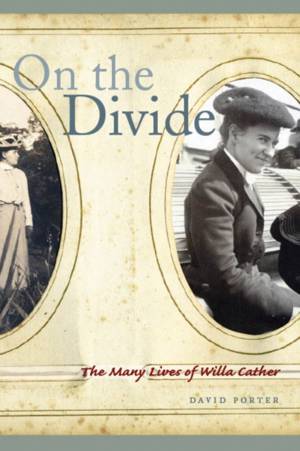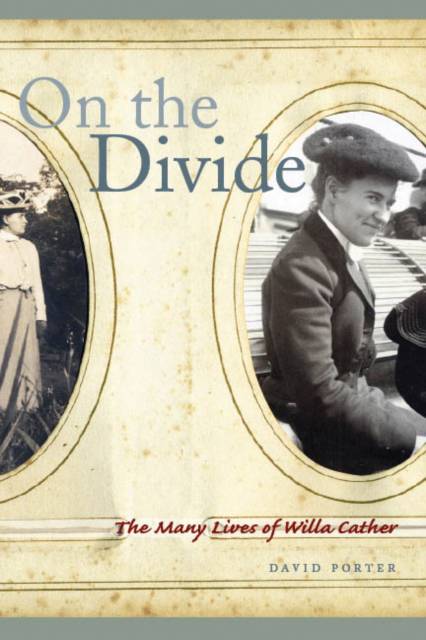
- Afhalen na 1 uur in een winkel met voorraad
- Gratis thuislevering in België vanaf € 30
- Ruim aanbod met 7 miljoen producten
- Afhalen na 1 uur in een winkel met voorraad
- Gratis thuislevering in België vanaf € 30
- Ruim aanbod met 7 miljoen producten
Zoeken
€ 45,95
+ 91 punten
Uitvoering
Omschrijving
Willa Cather's fiction frequently plays out on "the divide," the high prairie land of Nebraska, where the author herself lived as a child. This book suggests that Cather's own life played out on a divide as well, deliberately measured out between different roles and personae that made their way into her writing. On the Divide analyzes the iconic image that Cather helped develop for herself, in contrast to the anonymous face she adopted for promotional activities and the very different private self she shared only with friends and family. Delving into Cather's correspondence and the little-known promotional material she produced anonymously, David Porter provides new insight into the extent--and direction--of her control. He also considers the contrasting influences of Mary Baker Eddy, whose biography Cather ghostwrote, and Sarah Orne Jewett on the author's emerging artistic persona. The study goes on to explore the many ways in which these "divides" in Cather's life found expression in her writing. Extending from Cather's early stories to her final novel, Porter's book documents the degree to which Cather's understanding of her own different and often conflicting sides, and of her penchant for playing diverse roles, enabled her as a novelist to create characters so torn, so complex, and so profoundly human.
Specificaties
Betrokkenen
- Auteur(s):
- Uitgeverij:
Inhoud
- Aantal bladzijden:
- 416
- Taal:
- Engels
Eigenschappen
- Productcode (EAN):
- 9780803237551
- Verschijningsdatum:
- 1/11/2008
- Uitvoering:
- Hardcover
- Formaat:
- Genaaid
- Afmetingen:
- 152 mm x 231 mm
- Gewicht:
- 771 g

Alleen bij Standaard Boekhandel
+ 91 punten op je klantenkaart van Standaard Boekhandel
Beoordelingen
We publiceren alleen reviews die voldoen aan de voorwaarden voor reviews. Bekijk onze voorwaarden voor reviews.








